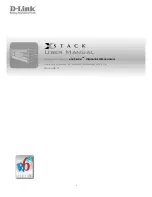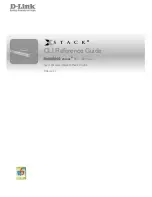
RUGGEDCOM RSG2488
User Guide
Chapter 5
Setup and Configuration
Viewing Global Statistics for STP
139
Parameter
Description
• In a single ring topology, this feature is not needed and should be
disabled to avoid longer network recovery times due to extra RSTP
processing.
The Fast Root Failover algorithm must be supported by all switches in the network,
including the root, to guarantee optimal performance. However, it is not uncommon to
assign the root role to a switch from a vendor different from the rest of the switches in
the network. In other words, it is possible that the root might not suport the Fast Root
Failover algorithm. In such a scenario, a "relaxed" algorithm should be used, which
tolerates the lack of support in the root switch.
These are the supported configuration options:
• Off - Fast Root Failover algorithm is disabled and hence a root switch failure may
result in excessive connectivity recovery time.
• On - Fast Root Failover is enabled and the most robust algorithm is used, which
requires the appropriate support in the root switch.
• On with standard root - Fast Root Failover is enabled but a "relaxed" algorithm is
used, allowing the use of a standard switch in the root role.
IEEE802.1w Interoperability
Synopsis:
{ On, Off }
Default:
On
The original RSTP protocol defined in the IEEE 802.1w standard has minor differences
from more recent, enhanced, standard(s). Those differences cause interoperability
issues which, although they do not completely break RSTP operation, can lead to a
longer recovery time from failures in the network.
eRSTP offers some enhancements to the protocol which make the switch fully
interoperable with other vendors' switches, which may be running IEEE 802.2w RSTP.
The enhancements do not affect interoperability with more recent RSTP editions.
This configuration parameter enables the aforementioned interoperability mode.
Cost Style
Synopsis:
{ STP (16 bit), RSTP (32 bit) }
Default:
STP (16 bit)
The RSTP standard defines two styles of a path cost value. STP uses 16-bit path costs
based upon 1x10E9/link speed (4 for 1Gbps, 19 for 100 Mbps and 100 for 10 Mbps)
whereas RSTP uses 32-bit costs based upon 2x10E13/link speed (20,000 for 1Gbps,
200,000 for 100 Mbps and 2,000,000 for 10 Mbps). However, switches from some
vendors keep using the STP path cost style even in RSTP mode, which can cause
confusion and interoperability problems.
This configuration parameter selects the style of link costs to employ.
Note that RSTP link costs are used only when the bridge version support is set to allow
RSTP and the port does not migrate to STP.
3. Click
Apply
.
Section 5.2.7
Viewing Global Statistics for STP
To view global statistics for STP, navigate to
Spanning Tree > View Bridge RSTP Statistics
. The
Bridge RSTP
Statistics
form appears.
















































